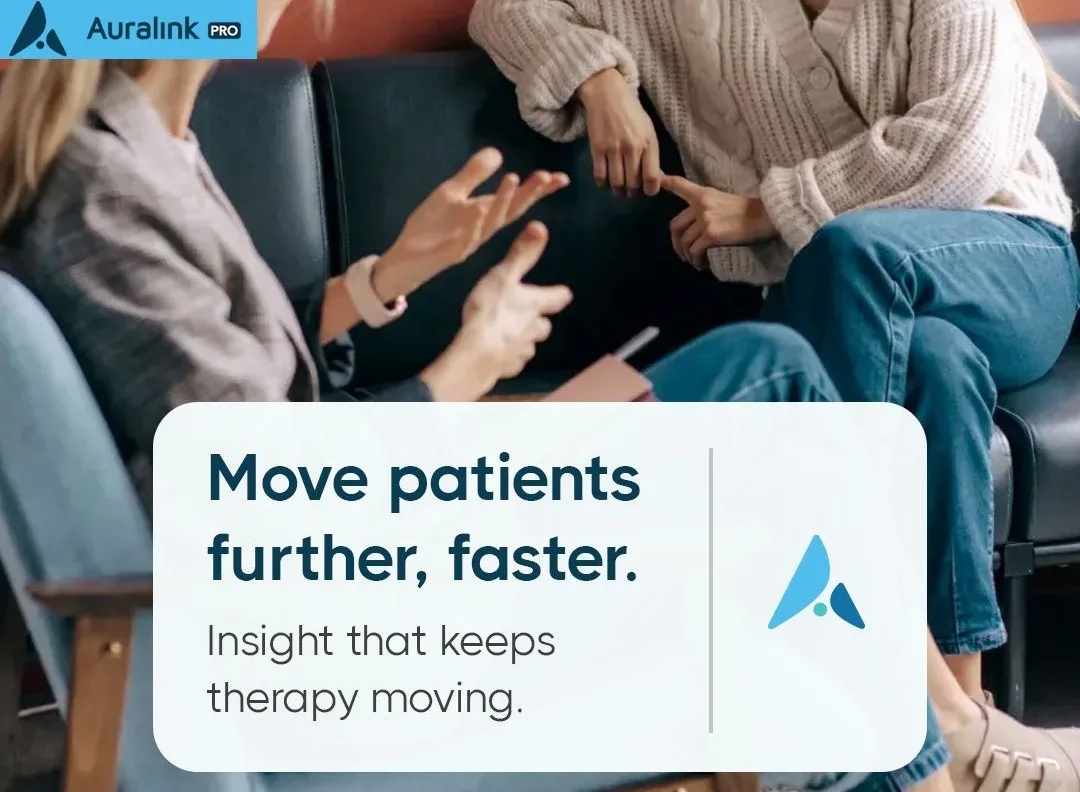Unlocking Your Mind: The Surprising Science of AI Copilot for Therapists in Self-Discovery
The journey of self-discovery lies at the heart of psychotherapy. Clients often seek therapy to better understand their thoughts, emotions, and behaviors, yet this process can be challenging and complex. Even skilled therapists can encounter barriers when clients struggle to articulate internal experiences, confront difficult truths, or recognize subtle patterns in their emotions and behaviors.
Emerging technologies, when thoughtfully integrated, can augment the self-discovery process without replacing the human element. Among these, Auralink Pro, an AI copilot for therapists, is transforming how therapists and clients navigate self-exploration. Designed specifically for the therapeutic process, not generic productivity or administrative tasks, the platform leverages AI-guided discovery and AI-powered mediation to help therapists gain actionable insights and facilitate deeper client understanding.
This article examines the scientific and clinical underpinnings of AI-supported self-discovery, exploring how tools like Auralink Pro can enhance therapeutic outcomes and foster meaningful reflection for clients.
The Role of Self-Discovery in Therapy
Self-discovery is more than simply gaining awareness; it requires a deep understanding of emotional patterns, cognitive biases, relational dynamics, and personal motivations. Therapists guide clients through a structured process that encourages introspection, highlights blind spots, and empowers individuals to take ownership of their growth.
Despite best efforts, clients often face significant obstacles in this process:
- Difficulty articulating internal experiences: Emotional overwhelm, anxiety, or limited self-awareness can make it hard for clients to clearly express what they are feeling or thinking.
- Resistance to confronting uncomfortable truths: Clients may avoid exploring painful emotions or memories, leading to superficial engagement during sessions.
- Patterns of avoidance or defense mechanisms: Unconscious coping strategies can obscure insight, making it challenging for therapists to identify core issues or recurring emotional patterns.
Traditional therapy relies heavily on in-session dialogue, where therapists observe and interpret emotional and behavioral cues in real time. However, this approach can sometimes restrict the depth of exploration, as clients may not always feel ready to reflect on sensitive topics during the session itself.
This is where an AI Copilot for Therapists becomes particularly valuable. By enabling guided, asynchronous reflection outside of the clinical hour, AI-assisted tools provide clients with the psychological space to process complex emotions at their own pace. The result is richer self-exploration, more authentic articulation of internal experiences, and a deeper foundation for meaningful therapeutic breakthroughs once the session begins.
How AI Can Enhance Self-Discovery
AI tools designed for clinical practice can extend and enrich the self-discovery process. Auralink Pro allows clients to engage in structured reflection outside the session through interactions with its AI mediator, Ava. These interactions provide a private, nonjudgmental environment in which clients can process thoughts, explore emotions, and examine underlying patterns.
For therapists, this offers a dual advantage:
- Pre-session insight: Detailed summaries highlight recurring emotional patterns, attachment dynamics, and potential areas of conflict, giving therapists a clear understanding of what is driving the client’s thoughts, behaviors, and relational interactions before the session begins.
- In-session efficiency: With core reflections already surfaced, therapists can dedicate session time to deeper exploration, targeted interventions, and meaningful connection rather than decoding emotional signals or behaviors.
- Augmented understanding: By integrating AI, therapists gain access to patterns and insights that may not be immediately apparent, allowing for a more nuanced approach to guiding self-discovery.
- Enhanced client engagement: Clients are more likely to reflect meaningfully during live sessions when they have already articulated emotions and thoughts privately, leading to richer dialogue and self-exploration.
This integration of AI does not replace human insight but augments the therapist’s ability to guide self-discovery, allowing for richer, more meaningful therapeutic engagement and a more accurate understanding of the client’s inner world.
Structured Reflection and AI-Guided Discovery
Auralink Pro emphasizes structured reflection, a key mechanism for enhancing self-discovery. Clients engage with Ava asynchronously, responding to guided prompts and exploring thoughts and feelings in a safe, private environment.
Key benefits of this approach include:
- Psychological Safety: Clients feel free to explore complex or difficult emotions without fear of judgment, immediate confrontation, or social pressure. This safe space encourages honesty and authenticity, which is essential for genuine self-reflection.
- Deeper Emotional Awareness: Reflection helps clients identify subtle emotional shifts, recognize underlying fears, and surface recurring patterns that might be difficult to articulate in a live session. Over time, these insights contribute to increased self-understanding and the ability to anticipate emotional responses.
- Insightful Summaries for Therapists: Pre-session reports provide therapists with structured, actionable insights, highlighting critical emotional patterns, attachment dynamics, and alignment shifts. This allows therapists to enter sessions prepared with a nuanced understanding, making it easier to tailor interventions effectively and support the client’s self-discovery journey.
- Enhanced Engagement: Clients are often more engaged when they can process emotions privately first, leading to richer dialogue during live sessions. They come to therapy more prepared, self-aware, and ready to explore deeper aspects of their experience.
- Longitudinal Tracking: AI-assisted reflection enables therapists to track emotional and behavioral patterns over time. This longitudinal perspective helps identify recurring issues, progress in self-awareness, and shifts in relational dynamics, allowing for data-informed interventions.
Through this process, therapists can support clients in achieving greater self-awareness, recognizing how internal and relational dynamics influence behavior, and fostering the foundation for sustainable personal growth.
Mapping Patterns and Emotional Dynamics
Effective self-discovery often involves recognizing recurring emotional and cognitive patterns. Clients may unconsciously repeat behaviors, navigate relational conflicts in similar ways, or experience persistent emotional blocks. Auralink Pro enables therapists to map these dynamics over time, identifying trends that might otherwise remain hidden in session-to-session interactions.
For instance, a client may consistently feel misunderstood in relationships yet struggle to articulate the underlying emotions driving these experiences. Through AI-assisted reflection, these patterns emerge clearly, allowing therapists to:
- Pinpoint attachment dynamics and recurring relational conflicts: Therapists can see how early attachment patterns influence present behavior and emotional responses, enabling targeted interventions that address root causes rather than surface-level symptoms.
- Identify emotional triggers and avoidance behaviors: Recognizing triggers allows therapists to guide clients in developing coping strategies, promoting adaptive responses instead of repetitive avoidance patterns.
- Track progress over multiple sessions: Longitudinal insights help therapists evaluate whether interventions are effective and whether clients are achieving shifts in emotional processing, self-perception, and relational behavior.
- Spot emerging behavioral patterns: AI tools can detect subtle, recurring behaviors that may not be immediately evident during live sessions, providing a richer understanding of the client’s internal and relational world.
- Highlight relational alignment shifts: By tracking how client perceptions, emotions, and responses evolve over time, therapists can refine interventions and anticipate challenges, enhancing self-discovery and therapeutic outcomes.
By presenting complex patterns in a structured, accessible format, Auralink Pro equips therapists to guide self-discovery with clarity, ensuring interventions target the root causes rather than superficial symptoms.
Perspective 360: Expanding Self-Awareness
Self-discovery is enhanced when clients can see situations from multiple perspectives. The Perspective 360 tool in Auralink Pro condenses each party’s viewpoint,whether in individual, couples, or family therapy-into clear, actionable insights.
This perspective allows therapists to:
- Highlight discrepancies between client perception and external reality: Clients may misinterpret events, project fears, or overlook relational dynamics; therapists gain insight into these discrepancies and can guide corrective reflection.
- Clarify relational dynamics and potential misalignments: Understanding each participant’s perspective helps therapists address conflicts more effectively, fostering healthier relational patterns.
- Reduce interpretive bias: Structured data on emotional patterns ensures therapists respond based on objective observations rather than assumptions, improving therapeutic precision.
- Promote client self-reflection: Seeing their own patterns mirrored through Perspective 360 enables clients to identify blind spots, enhance self-awareness, and consider alternative interpretations of experiences.
- Support adaptive behavioral change: With increased insight into relational and emotional dynamics, clients can make conscious, informed decisions that promote growth and resilience.
For clients, this translates into increased self-awareness, empowering them to recognize patterns of misunderstanding, projection, or miscommunication, and to cultivate more adaptive behavior and emotional regulation.
Enhancing Therapeutic Progress Through Pre-Session Insight
Therapeutic progress is often accelerated when reflection occurs outside the constraints of the session. Pre-session insights generated by Auralink Pro allow therapists to:
- Enter sessions with clarity: Understanding the client’s emotional state and key issues beforehand helps focus discussion on meaningful areas.
- Prioritize interventions: Evidence-informed summaries allow therapists to target interventions effectively, making sessions more productive.
- Facilitate exploration: By surfacing important emotional insights in advance, therapists can guide discussions toward self-discovery rather than spending time decoding emotions.
- Strengthen client engagement: Clients feel heard and understood, increasing trust and willingness to explore deeper issues.
- Enhance treatment efficiency: Focused sessions and informed interventions reduce repetition and accelerate therapeutic progress.
For clients, this creates a sense of being truly seen and understood, fostering trust, engagement, and tangible growth in therapy.
Ethical and Practical Considerations in AI-Assisted Self-Discovery
The use of AI in self-discovery must be approached ethically. Auralink Pro addresses key considerations:
- Confidentiality: HIPAA-compliance, end-to-end encryption, and strict access control ensure that sensitive client data remains secure.
- Clinical Autonomy: AI supports, rather than replaces, the therapist’s professional judgment, allowing human expertise to remain central to intervention.
- Data Integrity: Session data is never used to train AI models, protecting client privacy while maintaining analytic rigor.
- Transparency: Therapists maintain open communication with clients about AI’s role in reflection and insight, reinforcing trust and collaboration.
- Ethical Integration: Structured AI processes are used as a tool for guidance and analysis, not decision-making, preserving the therapist’s authority and responsibility.
Applications Across Therapeutic Contexts
AI-supported self-discovery is relevant in multiple therapeutic contexts:
- Individual Therapy: Clients explore emotions and experiences privately, enabling richer discussion during live sessions.
- Couples and Family Therapy: Asynchronous reflection surfaces each person’s perspective, reducing conflict and enabling constructive mediation.
- Ongoing Monitoring: Tracking emotional patterns over time allows therapists to adjust interventions and guide clients toward greater self-awareness and growth.
- Trauma-Informed Practice: Clients can process traumatic experiences at their own pace before discussing them in session, enhancing safety and readiness.
- Behavioral Tracking: AI can support goal-oriented therapy by monitoring progress and helping clients recognize improvements or persistent challenges.
By combining structured reflection with data-driven insight, therapists can enhance both the depth and efficiency of self-discovery, helping clients recognize patterns, identify triggers, and develop adaptive coping strategies.
Conclusion
Empathy is central to effective psychotherapy, yet therapists often face challenges in fully understanding and responding to clients’ emotional experiences during sessions. Structured pre-session reflection and guided analysis, as supported by tools like asynchronous client reflection and perspective tracking, can provide a deeper understanding of emotional patterns, relational dynamics, and client priorities. By integrating these insights into practice, therapists can enter sessions with greater clarity, respond more thoughtfully to complex emotional cues, and focus on interventions that support meaningful therapeutic progress.
Auralink Pro is a platform designed specifically for psychotherapists, offering structured tools to support reflection, analyze client dynamics, and enhance clinical insight while maintaining the integrity of the therapeutic process.





